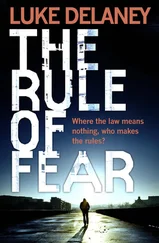How well I kept my promise, I'm afraid to say. The stubbornness of boys in their childish ways must be a prodigy to women, who learn faster than angels how not to misbehave. Throughout my childhood there was a monopoly on mistakes in my house, and I was its Rockefeller. I never imagined the magnitude of the error my mother was warning me against, until I had the misfortune of falling into it. By that time, though, it was Katie, and not my family, who had to suffer for it.
January came, and Colonna's first riddle gave way to another, then a third. Paul knew where to look for them, having detected a pattern in the Hypnerotomachia : following a regular cycle, the chapters grew in length from five or ten pages, to twenty, thirty, or even forty. The shorter chapters came in a row, three or four at a time, while the long ones were more solitary. When graphed, the long periods of low intensity were interrupted by sharp upticks in chapter length, creating a visual profile we both came to conceive of as the Hypnerotomachia 's pulse. The pattern continued until the first half of the book ended, at which point a strange, muddled sequence began, no chapter exceeding eleven pages.
Paul quickly made sense of it, using our success with Moses and his horns: each spike of long, solitary chapters provided a riddle; the riddle's solution, its cipher, was then applied to the run of short chapters following it, yielding the next part of Colonna's message. The second half of the book, Paul guessed, must be filler, just as the opening chapters of the first half appeared to be: a distraction to maintain the impression of narrative in an otherwise fragmented story.
We divided the labor between us. Paul hunted for riddles in the longer chapters, leaving each one behind for me to solve. The first I tackled was this: What is the smallest harmony of a great victory?
It makes me think of Pythagoras, Katie said when I told her over pound cake and hot chocolate at Small World Coffee. Everything with Pythagoras was harmonies. Astronomy, virtue, math…
I think it has to do with warfare, I countered, having spent some time at Firestone looking at Renaissance texts on engineering. Leonardo, in a letter to the Duke of Milan, claimed he could build impenetrable chariots, like Renaissance tanks, along with portable mortars and great catapults for use in sieges. Philosophy and technology were merging: there was a mathematics to victory, a set of proportions to the perfect war machine. It was only a small step from math into music.
The next morning, Katie woke me at 7:30 to go jogging before her 9:00 class.
Warfare doesn't make sense, she said, beginning to parse the riddle as only a philosophy major could. There are two parts to the question: smallest harmony and great victory. Great victory could mean anything. You should focus on the clearer part. Smallest harmony has fewer concrete meanings.
I grumbled as we passed the Dinky train station on our way to the west of campus, envying the stray passengers waiting for the 7:43. Running and thinking were unnatural things to be doing while the sun was still rising, and she knew the fog wouldn't burn off my thoughts until noon. This was just taking advantage, punishing me for not taking Pythagoras seriously.
So what are you suggesting? I asked.
She didn't even seem to be breathing hard. We'll stop at Firestone on our way back around. I'll show you where I think you should look.
It continued like that for two weeks, waking at dawn for calisthenics and brainteasers, telling Katie my half-baked ideas about Colonna so that she would have to slow down to listen, then forcing myself to run faster so that she would have less time to tell me how I was wrong. We were spending the last part of so many evenings with each other, and the earliest part of so many mornings, that I thought it would eventually occur to her, rational as she was, that spending the night at Dod would be more efficient than trekking back and forth to Holder. Every morning, seeing her in spandex and a sweatshirt, I tried to think of a new way to extend the invitation, but Katie always made a point of not understanding. Gil told me that her old boyfriend, the lacrosse player from one of my seminars, had made a game of her from the start, not pushing her for affection on the few occasions when she was drunk, so that she would melt with gratitude when she was sober. The pattern of his manipulation took so long for her to realize that she brought the aftertaste of it to her first month with me.
What should I do? I asked one night after Katie left, when the frustration was almost too much. I was getting a tiny kiss on the cheek after each morning run, which, all things considered, hardly covered my expenses; and now that I was spending more and more time on the Hypnerotomachia , and getting by on five or six hours of sleep a night, an entirely new sort of debt was accruing. Tantalus and his grapes had nothing on me: when I wanted Katie, all I got was Colonna; when I tried to focus on Colonna, all I could think of was sleep; and when, at last, I tried to sleep, the knock would come at our door, and it would be time for another jog with Katie. The comedy of being chronically late for my own life was lost on me. I was due for something better.
For once, though, Gil and Charlie spoke with one voice: Be patient, they said. She's worth it.
And, as usual, they were right. One night in our fifth week together, Katie eclipsed us all. Returning from a philosophy seminar, she stopped by Dod with an idea.
Listen to this, she said, pulling a copy of Thomas More's Utopia from her bag and reading from it.
The inhabitants of Utopia have two games rather like chess. The first is a sort of arithmetical contest, in which certain numbers take others. The second is a pitched battle between virtues and vices, which illustrates most ingeniously how vices tend to conflict with one another, but to combine against virtues. It shows what ultimately determines the victory of one side or the other.
She took my hand and placed the book in it, waiting for me to read it again.
I glanced at the back cover. Written in 1516, I said. Less than twenty years after the Hypnerotomachia . The timing wasn't far off.
A pitched battle between virtues and vices, she repeated, showing what determines the victory of one side or the other. And it began to dawn on me that she might be right.
Lana McKnight used to have a rule, back in our dating days. Never mix books and bed. In the spectrum of excitement, sex and thought were on opposite ends, both to be enjoyed, but never at the same time. It amazed me how such a smart girl could suddenly become so ravenously stupid in the dark, flailing around in her leopard-print negligee like some cave-woman I'd thumped with a club, barking things that would've horrified even the pack of wolves that raised her. I never dared to tell Lana that if she moaned less it might mean more, but from the very first night I sensed what a wonderful thing it might be if my mind and my body could be aroused at the same time. I probably should've seen that possibility in Katie from the beginning, after all the mornings we spent exercising both muscles at once. But it was only that night that it happened: as we worked out the implications of her discovery, the last residue of her old lacrosse player finally slipped off the page, erased, leaving us to start again.
What I remember most clearly about that night is that Paul had the grace to sleep at Ivy, and that the lights were on the whole time Katie stayed. We kept them burning while we read Sir Thomas More, trying to understand what game he was referring to, in which great victories were possible when virtues were in harmony. We kept them burning when we found that one of the games More mentioned, called the Philosophers' Game, or Rithmomachia, was precisely the kind Colonna would've favored, the most challenging of any played by medieval or Renaissance men. We kept them burning when she kissed me for saying I thought she was right after all, because Rithmomachia, it turned out, could be won only by creating a harmony of numbers, the most perfect of which produced the rare outcome called a great victory. And we kept them burning when she kissed me again for admitting my other ideas must have been wrong, and that I should've listened to her from the beginning. I realized, finally, the misunderstanding that had persisted since the morning of our first jog: while I'd been struggling to stay even with her, she'd been pushing to stay one step ahead. She'd been trying to prove that she wasn't intimidated by seniors, that she deserved to be taken seriously-and it never occurred to her, until tonight, that she'd succeeded.
Читать дальше












